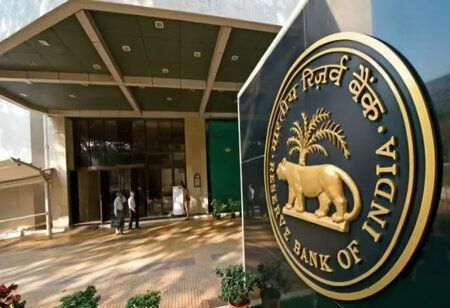By Global Consultants Review Team
 The Reserve Bank of India (RBI) has unveiled a comprehensive framework aimed at accelerating the adoption of Artificial Intelligence (AI) across the country’s financial sector. Backed by a proposed ₹4,800 crore ($575 million) public fund, the initiative is designed to promote the development of home-grown AI solutions while ensuring innovation is balanced with effective risk management.
The Reserve Bank of India (RBI) has unveiled a comprehensive framework aimed at accelerating the adoption of Artificial Intelligence (AI) across the country’s financial sector. Backed by a proposed ₹4,800 crore ($575 million) public fund, the initiative is designed to promote the development of home-grown AI solutions while ensuring innovation is balanced with effective risk management.
Developed by the RBI’s Free-AI committee, led by computer scientist Pushpak Bhattacharyya, the framework outlines 26 recommendations under six key pillars. A core focus is on building shared digital infrastructure, standardised datasets, computing power, and regulatory sandboxes to support both large institutions and smaller lenders in leveraging AI technologies.
The proposal includes the creation of a centralised financial data infrastructure linked to India’s AI datasets platform, AIKosh. This would give banks and fintechs access to high-quality data to train AI models. It also recommends integrating AI with key public digital platforms like the Unified Payments Interface (UPI). To facilitate safe experimentation, an AI innovation sandbox has been proposed, alongside shared GPU access that smaller financial firms can rent, ensuring AI development isn’t monopolised by larger players.
The framework emphasises building local AI models tailored to Indian regulations, financial products, and languages. These models would power voice-enabled, multilingual banking services and include built-in fraud detection features, helping improve financial access across the country.
The RBI estimates AI could improve banking efficiency by up to 46 percent, with India’s generative AI market projected to exceed $12 billion by 2033. However, experts warn that fragmented data systems and a lack of domain-specific talent could slow adoption. Governance is a key part of the plan, with recommendations for board-level AI policies, internal oversight, and risk-monitoring committees.
While aligned broadly with the Digital Personal Data Protection (DPDP) Act, the framework introduces tiered data breach reporting and privacy measures that may require further clarification. As these remain proposals, how they’re finalised will determine the future of AI in India’s financial ecosystem.
We use cookies to ensure you get the best experience on our website. Read more...